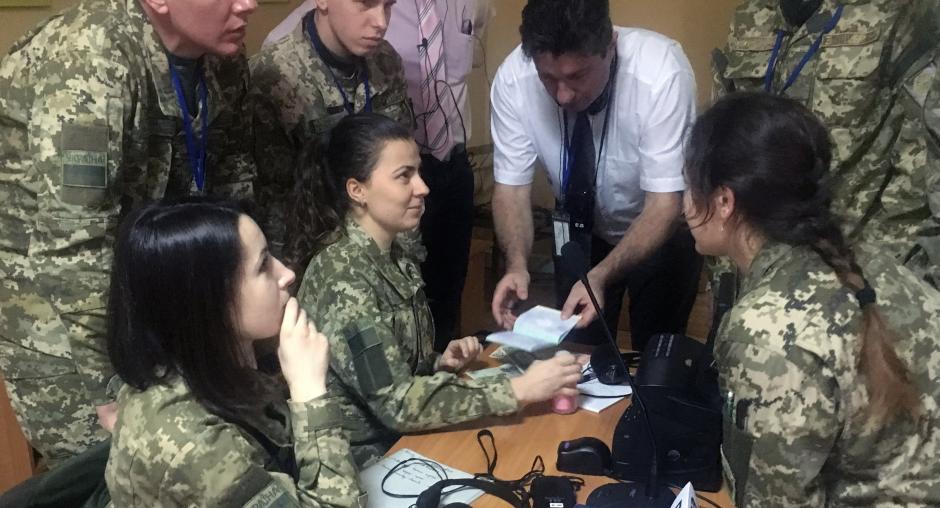OSCE organizes training-of-trainers course in Ukraine on detecting forged documents

A two-week advanced train-the-trainer course for ten Ukrainian border control officers took place from 4 to 14 December 2017 in Cherkasy, Ukraine. Organized by the Border Security and Management Unit of the OSCE’s Transnational Threats Department (TNTD/BSMU), the course aimed to develop the officers’ knowledge about fraudulent documents and their teachings skills for delivering such training courses themselves in the future.
The participants had the opportunity to exchange their experiences regarding the latest trends in counterfeiting methods and ways of identifying forgeries. The attendees also learned about the manufacturing process of forged travel documents, the use of paper and polymer substrates to ensure document security and profiling techniques, and are now expected to act as national trainers and disseminate the knowledge acquired during the course among their peers. The training had a strong interactive component, as it included practical work on original, forged and false documents, as well as the use of forensic equipment to identify document forgery. In order to ensure that Ukrainian border officials have the capacities to put the skills acquired throughout these two weeks into practice, the OSCE donated equipment used for passport verification during the training. This included 10 USB microscopes for use by trainers and 10 high-quality luminescent magnifiers.
While the production methods and security features of travel documents have become more sophisticated in recent years, criminal networks involved in the falsification and counterfeiting of travel documents have developed new forms of forgeries to adapt to these changes. In this context, it is essential that border officers are up to date on the latest trends in document fraud to prevent abuses and threats to internal security arising from failings in document security, including terrorism, drug trafficking and organized crime.
This course was a follow-up to a series of six courses on the detection of forged travel documents that TNTD/BSMU organized in Ukraine from 2015 to 2016. The training was conducted by two document experts from the Austrian Interior Ministry. The Austrian training material is accepted by the European Agency for the Management of Operational Co-operation at the External Borders (FRONTEX) as a best practice.
